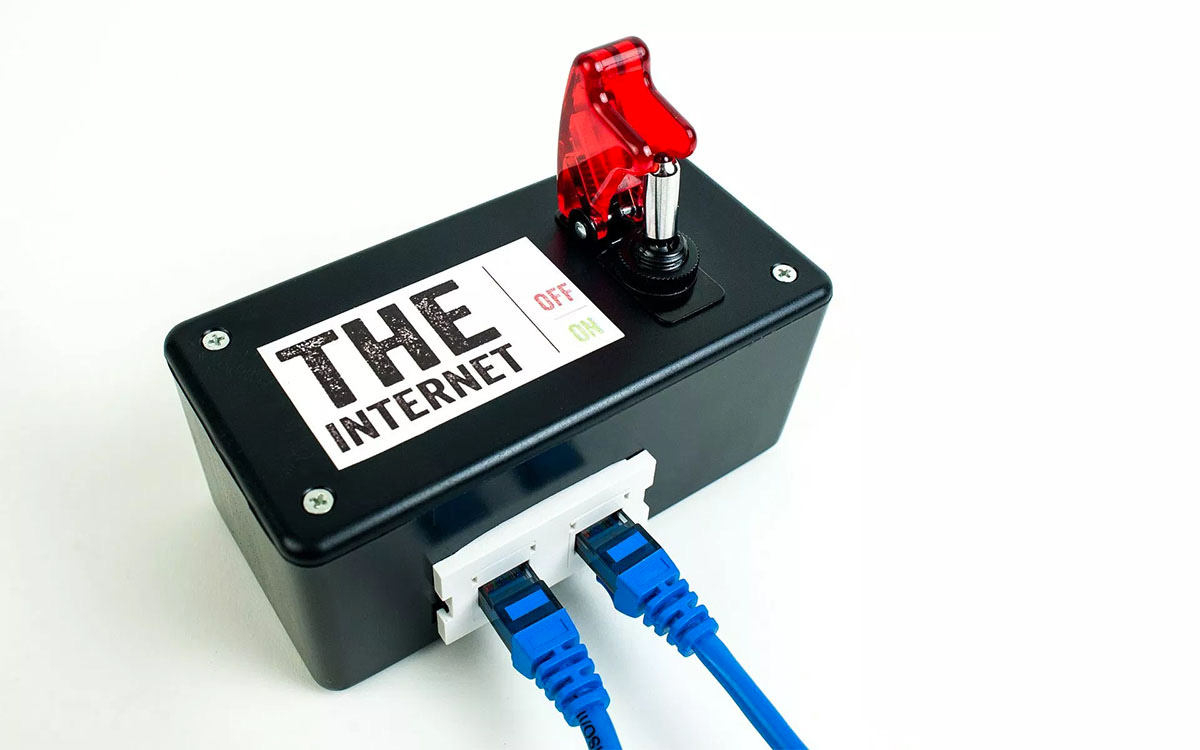big tech is killing the internet. but that may be a good thing...
Sometimes, the biggest mistake is not letting things crash and burn.
Back in August, I wrote about the notion of a zero click web, the idea that giant social media platforms and search engines will no longer just be gateways to many unique, custom experiences the web has to offer, but act as both the portal and destination. Just imagine a giant mall that makes leaving a hassle and makes you pass by dozens of stores they approve of, then forces you walk through ad after ad on your way out, and that’s basically it.
Now, you’d think people would revolt, and yet, they don’t. If anything, the experiment has been wildly successful as website owners report seeing their traffic halved. That incentive to build a great site is no longer there. A landing page with more links to yet more huge platforms is all you really need while you optimize your content for the one or two top performing places for you. (Which in my case are Substack and TikTok.)
But why? Well, there are three forces in play. The first is that we love convenience as humans. Being relatively large mammals, we like to conserve energy when possible, so when platforms serve up what we want on a platter, we have little incentive to go further. Most times, when people search, they don’t want dozens of answers to sort through based on whatever looks more legit. They want just one authoritative answer and move on with their day.
The second is a sea change in how people use social media. Rather than being used to having to click on multiple links to get an answer and read through articles, which could then lead them to explore more of a website and even subscribe, their attitude is now “let the algorithm wash over me” and assume that the AIs will bring them the information they need to have. It’s a tremendous level of trust in the product of huge companies in which they say they have little faith. But paradoxical beliefs are also a typical human trait.
Finally, they don’t want to leave platforms where all their friends and favorites are, so the incentive is to stay on the platform, play by its rules, and make zero click content that you basically have to sign over to the platform’s owners more often than not. You can not post to avoid this issue, but actually no, you can’t because that’s where your audience is, so dance puppet, dance. Usually for pennies, by the way.
In trying to adapt to this not so brave new world, a lot of websites have made things much worse for the visitors they do get. Click on a link to read something? Hold on, you need to fill out this form about what cookies you will and won’t accept. And do you want to sign up for the newsletter? Oh, and disable your ad blocker please so a bunch of spammy ads paying peanuts can try to install crypto mining bots on your computer. Wait, where are you going?! Come back!
how the wild web was won
Altogether, this produces utterly baffling dynamics. Back in the late 00s, a post with over a hundred upvotes on Reddit could generate tens of thousands of views, visits, and comments. The site’s denizens even called it the “hug of death” as smaller sites melted down under the suddenly massive load. Today? A post with 500 upvotes will barely budge the needle.
Social media posts that go viral with thousands of likes and shares, have utterly and alarmingly pathetic clickthrough rates. For every hundred or so likes or reposts, you are lucky to get one click, which raises the alarming question of why exactly is it that so many people are recommending the link with their engagement. Does this action mean “yeah, sounds good, sure hope someone reads it because it sure as hell isn’t gonna be me?” Again, the mind boggles.
On top of all this, what used to be gateway pieces which encouraged people to seek out more of your content, especially in different spaces became a rarity. Well… unless you have an OnlyFans link in your bio, which is why so many creators are dabbling in making adult content now. No judgment, by the way. You gotta do what you gotta do to get ahead in these bizarre and trying times.
If you’re not willing to do that — or are very confident that no one ever wants to see that kind of thing — or collaborate with creators whose content trends that way, the strategy seems to be picking just one content format, then hope those who followed or subscribed will see you again until you amass hundreds of thousands of fans who will indeed follow you anywhere, and even then, it can take years to fully expand.
What effectively happens is that instead of building a brand, you’re just throwing out bits of content that platforms treat as individual, unrelated snippets to toss out at the seemingly interested audience which has been trained to be passive consumers, and the only personal brand building that happens is if you’re just seen enough after you effectively spam the platform with enough content to get noticed.
There is no way to stand out with a clean design, or cool graphics, or promoting your space. If you’re going to catch people’s attention, you do it by the platform’s rules or guessing the audience’s preferences and hoping for the best. After all, you’re on the same platform as everyone else and the most customization you get is an avatar and a header since that’s what everyone else gets too. In some cases, you don’t even get to promote your links to other platforms in a nav. (Looking at you Substack.)
grave of the digital fireflies
When I think about this dynamic, I remember the chorus to Bo Burnham’s Welcome To The Internet, which strategically repeats “apathy’s a tragedy, and boredom is a crime / anything and everything, all of the time,” and consider just how right he was about the quest to completely overwhelm people with a firehose of content so you could steal a little bit of their attention and monetize it, ideally every waking moment of their lives.
This is effectively where we’re ending up and why tech is no longer fun. Instead of just creating for the joy of creating and being able to connect to audiences are are actively seeking new ideas, new content, and more options, then benefitting from a symbiotic relationship, we are fighting for scraps by further overwhelming users whose eyes are glazed over from the relentless assault of the digital parasites in their hands.
Likewise, the fact that we do have platforms with numbers of users in the hundreds of millions, if not billions, gives them perverse incentives that Cory Doctorow now rather famously called enshittification. They’re not worried about capturing users because at this point, they’ve gotten pretty much everyone who has internet access onboarded, so they don’t need to convince people to join with better features or nicer designs, or more fun and less annoying experience.
No, instead their focus is on squeezing more and more out of a captive audience each fiscal quarter for the shareholder class. You being meat with eyes then can abuse and gaslight to their heart’s content is perfect. The only thing they’re worried about is if an exodus too large for the platform to handle will occur after they cross a line, but with a billion people, the odds of that happening are very low, so there’s virtually no limits to just how shitty they can make the web until you physically cannot use it anymore.
And unfortunately, the more I see and study this problem, they more I think that that’s what it will take for us to reset to a healthier internet based on active participation and kill the major platforms. They will have to very literally and irreversibly break the web for the average user, so much so that every time they open an app, it explodes with a cacophony of nose, ads, and every other click either spams their device with a flood of ads, overwhelms the buggy, overbuilt services, or shuts down the app itself.
So, maybe, the internet dying is a good thing in the end. Out of its rotting ashes, new, more sustainable, healthier, and independent models can rise anew. It would also fit in with the world of “tech disruptors” because in tech, when a project is just too far gone and cannot be salvaged, we employ what’s known as the Ctrl+A+Delete pattern. Here is to the death of the web as we know it, I guess…




